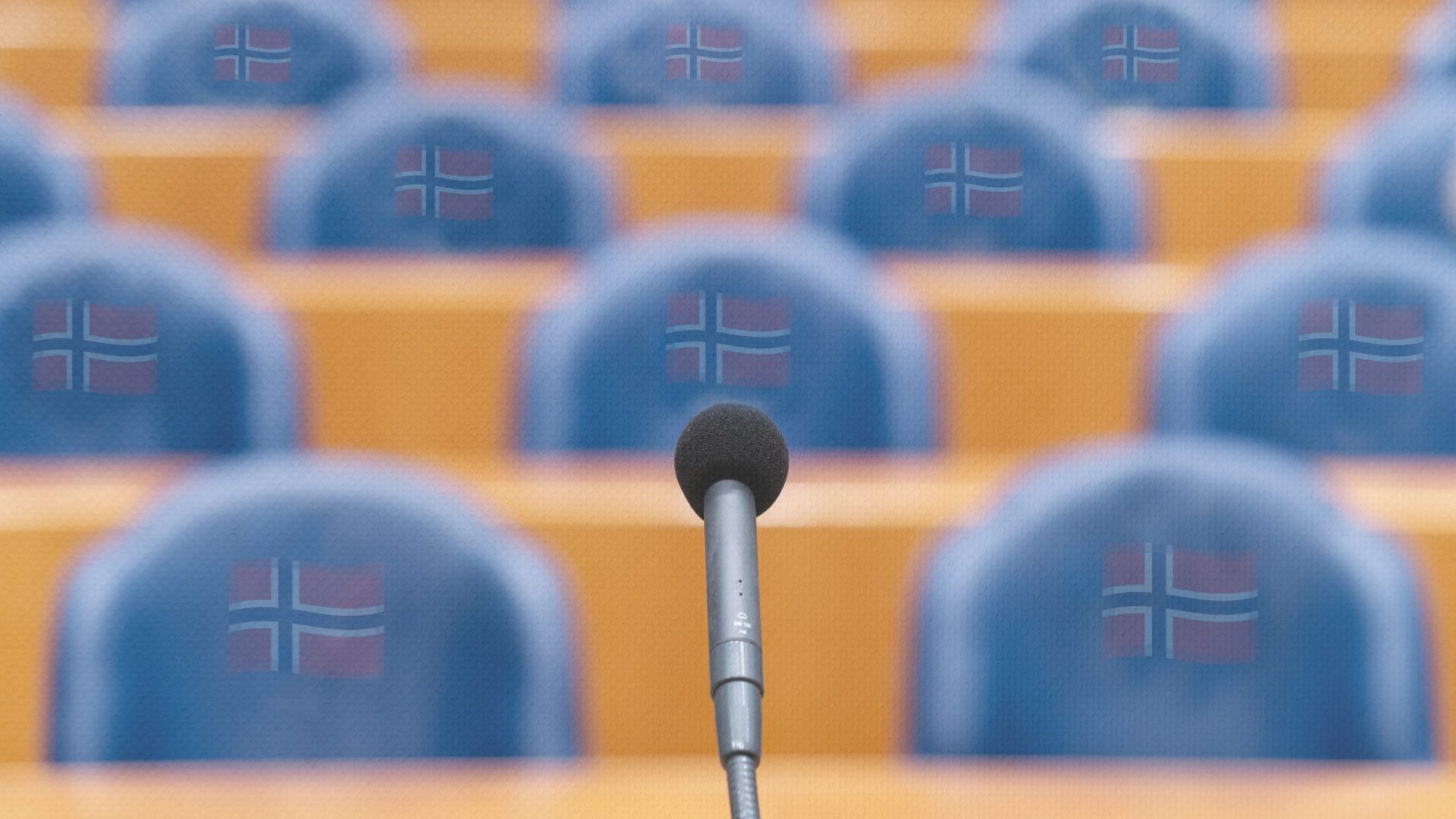Nine empty podiums, microphones at the ready, stand in a Norwegian television studio, five on one side and four on the other. In the middle stands a smiling Fredrik Solvang, the presenter and moderator of Debatten, Norway’s leading political debate programme. The music fades out and, looking calmly into the camera, he begins an extraordinary introduction to tonight’s party leadership debate.
He explains that as a prominent TV moderator, he has been threatened in the past by spin doctors and bullied by politicians desperate to control the debate’s subject matter. He has also been criticised by the media for either being too aggressive, not aggressive enough or plain biased. Ultimately, he added, he has been forced to moderate facile political debates.
“I hated it. I feel like a puppet,” he told me.
Frustrated and angry, he came up with an idea, ran it past his colleagues at NRK, the state-owned Norwegian TV channel, and somewhat to his surprise got the go-ahead to give it a try. Tonight, he tells the audience at home, things are going to be different. He explains that what the politicians say during the debate is completely up to them, with no questions from him. The rules will be up to them and they can choose to interrupt each other or not. When the camera lights go red, they will be live and on their own.
With a roguish smile, he tells them they can go over to the podiums and stand where they want. At this point, the nine leaders of Norway’s political parties, who have been milling around in the foreground while Fredrik speaks, start paying much closer attention. “Is this actually happening,” asks one as they arrange themselves behind the podiums. Then – live on TV – Fredrik walks off set. “See you in an hour,” he says, waving breezily. “The risk,” said Fredrik Solvang, laughing, “was that I would be made completely irrelevant.”
The looks of uncertainty that cross the party leaders’ faces as Fredrik strolls away are a beautiful thing to behold. Media-trained confidence evaporates and there is an outbreak of nervous laughter. Eyes dart to nearby monitors for reassurance. “Norway’s politicians are polite so I was not worried it was going to be chaos,” said Solveig Tvedt, a senior producer at NRK. “I was more worried it was going to be boring.” She was right to worry.
Erna Solberg, former prime minister, leader of the opposition Conservative Party of Norway, and a weathered political bruiser, felt no compunction to edit her comments. But Arild Hermstad, the mild-mannered leader of the Green Party, struggled to engage and got badly sidelined. Lengthy statements were heavy on detail but short on interest. None of the leaders were questioned and the presentations lumbered painfully along.
The political leaders had free rein in the studio and they delivered a yawn. So dull was it that the media in Norway barely reacted. “We won’t be doing it again,” said Solveig Tvedt. “It was not a debate. It was no surprise that we need a professional in the studio.” Despite their dreams coming true and being given the run of the studio for an hour live on TV, the leaders all agreed on one thing. “I got to talk without being interrupted,” said a delighted Erna Solberg. “But none of us here don’t want a moderator.”
The implications of this televisual experiment go beyond the polite political corridors of Norway. As has been made painfully clear during recent elections in the US and Europe, politicians like trying to control leadership debates. So called “narrative management” by spinners and advisers easily evolves into threats to limit journalistic access, refuse interviews or sideline individual reporters or entire media platforms.
Politicians, drunk on social media’s ability to disenfranchise awkward journalists, argue that the media is simply in the way and they should be left to their own devices. “If the politicians control the agenda, I don’t want to live in that world,” said Fredrik Solvang. He was willing to put his job on the line to make that point.
Party leaders across the EU and US could also be left to their own devices. Who knows what might happen? If the Norwegian model is right, politicians will bore audiences into a catatonic state and moderators, armed with a newfound legitimacy, will be able to perform cardiopulmonary resuscitation on the democratic process at a time when it so desperately needs it.
David Ibison is the former Nordic Bureau chief for the Financial Times



